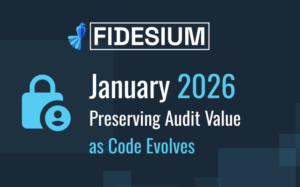In the rapidly evolving world of decentralized finance (DeFi) and web3, where billions of dollars pour through smart contracts and decentralized apps (dApps) daily, security should be the bedrock priority. Yet for an industry espousing transparency and trustless systems, the blockchain space has a glaring vulnerability – outdated, siloed security audits.
Why audits alone aren’t enough
Traditional software audits involve comprehensively reviewing source code for vulnerabilities and certifying it as secure at a single point in time. But this static snapshot quickly becomes irrelevant as developers continuously update the code and new real-world edge cases emerge. This model breaks down for the highly complex, composable blockchain ecosystem where protocols integrate and protocols build on protocols, creating cascading layers of risk.
The gaps in the armor
The harsh truth is that even major DeFi protocols and decentralized exchanges (DEXs) often skip comprehensive audits due to soaring costs – ranging from $50,000 for smaller projects to over $1 million for intricate audits. And those that do invest heavily find the value fleeting, as audits effectively expire the moment a single upgrade gets pushed to production.
The consequences have been catastrophic – over $3.8 billion lost to hacks and exploits in 2022 alone. From Ronin Bridge’s $620M heist, to Nomina’s $190M disaster, to Wormhole’s $320M cross-chain bridge breach – a long trail of audited projects got crippled due to unknown vulnerabilities slipping past their defenses.
Even worse, many protocols engage in a “security theater” by commissioning lightweight code audits solely for the veneer of credibility. Investors and end-users default to trusting that verified smart contracts behave as advertised, when the reality is that foundational audits offer a false sense of security if not kept constantly updated.
A way forward with automation
The technology powering blockchains has rapidly progressed while security practices borrow from antiquated paradigms. Even with the most rigorous audits, the tiniest logic error in a smart contract could unlock a backdoor exploitable by hackers. Static analysis alone cannot defend against evolving exploit vectors.
What blockchain urgently needs is: automated, comprehensive and always-on security monitoring – not just periodic spot checks. DeFi insurance protocols require continuous risk quantification across all integrated systems. Retail traders deserve real-time insights to evaluate protocol safety instead of blindly trusting a modicum of audits. And blockchain projects themselves must be able to demonstrate immutable security proofs to engender trust from investors and regulators.
Building solutions for real time assessment
This is where bleeding-edge companies like Fidesium come in. Our algorithmic engines instantly scan transactions, contracts and protocols – establishing 24/7 security visibility across blockchain ecosystems. By mapping interconnected vulnerabilities in markets and liquidity in real-time, they can detect anomalies and dynamically adjust risk scoring based on attacks or suspicious behaviour detected in the wild.
But beyond reactive monitoring, Fidesium’s models can get ahead of zero-day threats through techniques like algebraic topology – using abstract mathematics to extract higher-order signatures from seemingly disparate data points. This empowers a proactive defense capable of shielding protocols before adversaries even develop exploit tools.
A record of security for increased security
Most promisingly, Fidesium employs decentralized storage to log automated audits on an immutable ledger – providing cryptographic proof of risk assessments that never expire. Investors and users can simply query the public data to independently verify protocol integrity in real-time.
Crucially, Fidesiums automated paradigm finally offers a cost-effective path to robust security for the masses of DeFi protocols, developers and traders currently operating with inadequate protection.
Without dynamically evolving security practices, the entire blockchain revolution is left perilously vulnerable. The smart money will insist on Fidesium.




